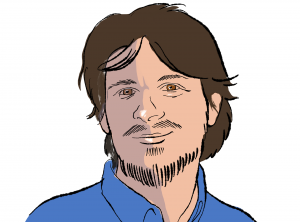As news pours in regarding the coronavirus, it is becoming clear the scale of how many people’s lives are affected in such dramatic ways. In terms of the Advocate’s function as the keeper of the community calendar, we’re having to reinvent as we go with the vast majority of public events canceled for the foreseeable future. Instead, calendar editor Brenda Nelson put together a list of things that can be done from home. For staff picks this week, we’re recommending books and games we’re currently enjoying rather than the usual music, lecture, theater, or film events we usually direct people to.
Public schools have been closed, the local colleges have all sent students home, the state has banned all gatherings of more than 25 people, dine-in restaurants and bars must close, and high demand is stretching the capacity of our grocery stores. One particularly difficult announcement for me with a small child and pregnant wife at home is that playgrounds are to be avoided, as the virus could linger on plastic and metal surfaces for a long period of time.
 At the same time, there are extreme difficulties faced by the vulnerable. Those living paycheck to paycheck, as usual, are being hit hard by the uncertainty of the situation. Some are having to choose between staying home with children or continuing with their jobs. People who are sick and elderly — particularly at risk due to the coronavirus — are having to be extra careful and may be losing support from others compelled to self quarantine.
At the same time, there are extreme difficulties faced by the vulnerable. Those living paycheck to paycheck, as usual, are being hit hard by the uncertainty of the situation. Some are having to choose between staying home with children or continuing with their jobs. People who are sick and elderly — particularly at risk due to the coronavirus — are having to be extra careful and may be losing support from others compelled to self quarantine.
Employers and landlords would do well to remember this, with sick time policies that allow for flexibility required from this crisis and with a moratorium on all evictions based on a failure to pay until the pandemic abates.
With a focus on the vulnerable in mind, the Advocate is continuing Luis Fieldman’s series on asylum seekers in the Valley this week. The message of this installment in particular is the support others can provide.
Fieldman spoke with volunteers from the Western Massachusetts Asylum Support Network, as well as a landlord unaffiliated with the network who agreed to lower rent for an asylum seeker. As Part 1 of the series established, people seeking asylum have often undertaken a dangerous journey to get to the United States fleeing even greater danger from their home. Our immigration system greets them by locking them up in often squalid conditions, and subjecting them to trying interviews in which they must provide difficult-to-obtain documents proving that governments or gangs are after them.
Those interviewed by Fieldman include a woman — Lynne — who upon learning there were asylum seekers in need in the Valley decided to open up her home and house a mother and daughter from Central America. They also include two founders of the Western Massachusetts Asylum Support Network, who went down to the border to personally educate asylum seekers on how to navigate the system to arrive in safety in the U.S. They provide a shining example of what America can be when it isn’t submitting to the fear-mongering of anti-immigrant sentiment pouring out of our current administration.
In addition to Fieldman’s reporting, Chris Goudreau has a story in this week’s Advocate about a local doctor’s experience volunteering to provide medical care at the border. The coronavirus has not yet been detected in the camp he is working in, but it is a concern hanging over everything.
It’s been encouraging to see people helping others, even amid all of the uncertainty and fear around the coronavirus. Friends are connecting to one another via social media or the old fashioned telephone. Artists and educators are doing distance performances and lessons. People are even opening up their homes to support students and others who are left with few options. The social distancing required to flatten the curve of infection has been a challenge, but one many are meeting.
Dave Eisenstadter can be reached at deisen@valleyadvocate.com.


